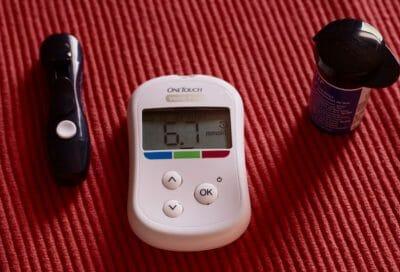As an approximation, there are over forty million people living in the United States alone who are living with either Type 1 or Type 2 diabetes, with over a quarter being over the age of sixty-five.
These days, thanks to the development and discoveries in the world of medicine, people are living almost to quadruple the age their ancestors did, but as a natural result, older people tend to suffer more illnesses, with diabetes being no exception.
Continue reading to discover how dementia and diabetes are connected.
The Impact of High Insulin & High Blood Sugar on the Brain
Currently, medical professionals and research scientists are not entirely sure as to the direct link, scientifically speaking, between dementia and diabetes, but they are positive that high levels of insulin or high levels of sugar in the body harm the brain in three ways.
Firstly, high blood sugar places an enormous amount of strain on the blood vessels of your body, and damaged vessels located in the brain can contribute to accentuated cognitive decline.
Secondly, high blood sugar also causes serious inflammation, which could affect brain cells, leading to the onset of dementia.
Thirdly, too much insulin results in a negative effect on the natural balance of different chemicals in the brain.
The Primary Ways to Reduce the Risk of Contracting Diabetes
The Alzheimer’s Association keeps it simple with its advice for people of any age or lifestyle for effective ways to reduce the risk of contracting diabetes, and alongside medical doctors’ advice and guidance given to patients on the subject every day, you would do well to heed the following:
- Seek to control and maintain a healthy blood pressure
- Lose weight if you are currently overweight
- Eat low-fat, natural, and highly nutritious foods
- Make sure you exercise for at least twenty minutes a day
- Stop smoking and regulate your alcohol intake
It would also be worth noting that reputable and prestigious assisted living facilities like those at Fort Lauderdale memory care are part and parcel of the community, and should your loved one be living with dementia, this could be something worth considering.
Diabetes & Dementia
Although, as previously stated, there is as of yet no ‘black and white’ link between dementia and diabetes, research has proven many facts about the relationship between the two.
Fundamentally, as proven by a study carried out by a Northern California drug research company in early 2021, there is a much greater risk of people with Type 1 diabetes contracting dementia; as a result, a ninety-three percent more likelihood in fact. This is due to the simple fact that too much sugar in the body for a prolonged period of time leads to organ damage, your brain, of course, being the most complex.
Another notable finding from the continuing extensive scientific research into the relationship between diabetes and dementia includes the APP gene, which affects the pathway for insulin distribution being directly connected with patients with dementia.
